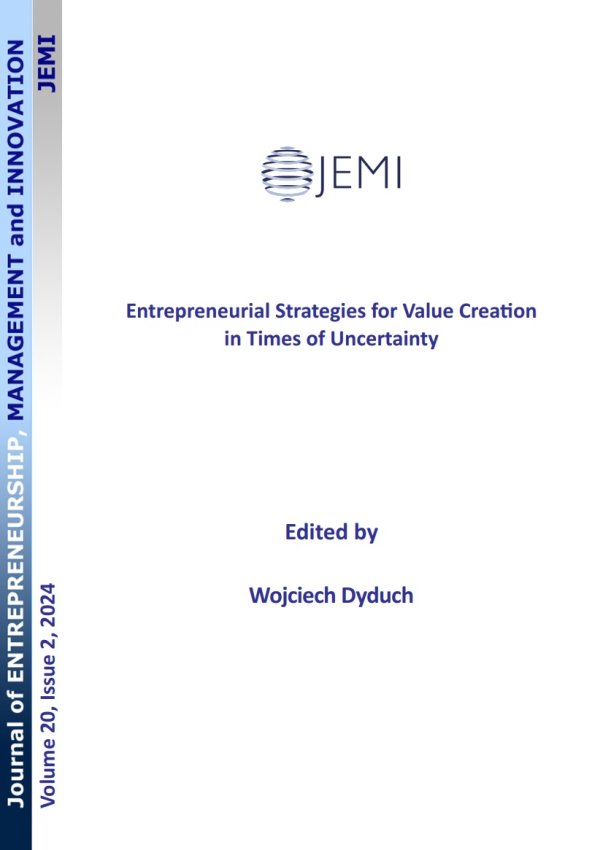Barbara Jankowska, Associate Professor, Poznań University of Economics and Business, Department of International Competitiveness, al. Niepodległości 10, 61–875 Poznań, Poland. E-mail: This email address is being protected from spambots. You need JavaScript enabled to view it..
Katarzyna Mroczek-Dąbrowska, Assistant Professor, Poznań University of Economics and Business, Department of International Competitiveness, al. Niepodległości 10, 61–875 Poznań, Poland. E-mail: This email address is being protected from spambots. You need JavaScript enabled to view it..
Marian Gorynia, Professor, Poznań University of Economics and Business, Department of International Competitiveness, al. Niepodległości 10, 61–875 Poznań, Poland. E-mail: This email address is being protected from spambots. You need JavaScript enabled to view it., al.
Marlena Dzikowska, Assistant Professor, Poznań University of Economics and Business, Department of International Competitiveness, al. Niepodległości 10, 61–875 Poznań, Poland. E-mail: This email address is being protected from spambots. You need JavaScript enabled to view it..
Abstract
Corporate groups are specific types of business networks that generate particular advantages for firms. They allow corporates to reduce costs, develop the pool of resources and increase the flexibility of operations and responses to external shocks among others. The above mentioned benefits are of even greater importance during times of economic turbulence. Their involvement in a corporate group should theoretically allow firms to perform better. The aim of this study is to verify whether corporate group membership truly translated into a firm’s higher input competitiveness and a firm’s better performance during the recent economic crisis. First, we try to investigate if the input competitiveness is higher in the case of firms being members of corporate groups. Second, we test whether the involvement in a corporate group matters for the performance of the firms. Using critical in-depth literature studies and conducting the primary empirical research using the CATI (computer-assisted telephone interviewing) method we strive to verify the following hypothesis - the higher a company’s input competitiveness during the economic crisis, the better a competitive position the company achieves. The empirical research encompasses more than 700 corporates from the manufacturing sector in Poland during the global economic crisis and shortly afterwards. To investigate the issue we use the following methods of statistical analysis – cluster analysis, non-parametric tests and correlation coefficients. The results of the study show that firms involved in both Polish and international corporate groups were more resilient during the economic crisis than those which were not.
Keywords: corporate groups, economic crisis, performance, networking.






